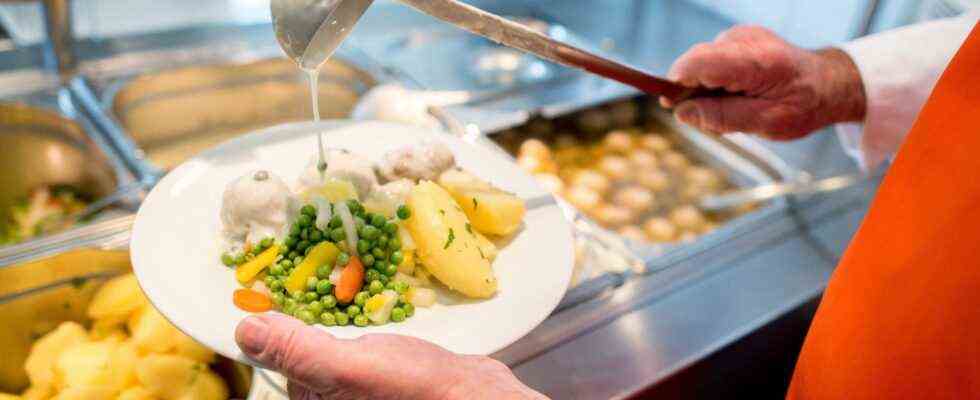Status: 01.07.2021 10:43 a.m.
The home office obligation has expired. When employees return to the office, canteens also hope for more sales thanks to new concepts. Their business recently collapsed massively.
Cozy with colleagues during the lunch break in the canteen: this has not been around for a long time. Those who went to the company restaurant during the Corona crisis mostly had to do it alone in the past few months – or at least with a long distance from their colleagues. Therefore, many have looked for an alternative, brought something to eat or ate outside.
40 percent less sales
In addition, many employees now work in the home office and accordingly prepare their meals at home. “The Federal Statistical Office shows real sales losses of 33.8 percent for caterers in 2020. In the Corona months from March 2020 to February 2021, sales were actually 40.5 percent below sales in the same period of the previous year,” reports Ingrid Hartges , General Manager of the German Hotel and Restaurant Association DEHOGA.
The developments in the individual segments were different. It was most dramatic where it was switched to home office. “This mainly took place in administrations or in banking and insurance, and much less in the manufacturing industry,” said Hartges.
The world of work has changed due to Corona
The division manager of company catering at apetito catering from Rheine, Rolf Minder, sees the beginning of a new trend. “Corona is changing company catering – not just in the short term, but in the long term for the next few years. To a large extent, we do not believe that the capacity of the company restaurants as we had before Corona can be achieved again,” says Minder. “It is becoming increasingly clear that the new world of work must be networked, digital and flexible in order to remain competitive.”
The Düsseldorf Klüh Group, which operates canteens in the Düsseldorf state parliament and Essen clinic, among other things, has also suffered from the corona crisis. “During the lockdown phase over the winter, we had meanwhile closed up to 80 of our 140 company restaurants. Now there are only just under 30,” says the management spokesman, Frank Theobald.
The income of a company restaurant would not only come from the income from day-to-day business, but also from employer grants that would subsidize meals. Conversely, this means that the employer may no longer be willing to run a company restaurant in the long term if there are permanently fewer guests. “However, we notice that many companies still keep company restaurants in order to remain attractive to their workforce and especially to potential applicants.”
Providers have to react with new concepts
At apetito it has been found that companies are hesitant to open their company restaurants. This leads to a decline in demand for classic lunch meals in companies. It is the same in the conference service and in the area of guest catering.
The providers now have to react. You are working on new concepts within company catering. “We are adapting our offers and expanding them,” reports apetito division manager Minde. “For example, we are relying even more on to-go and take-away concepts. In many places we offer these directly with reusable solutions – via deposit cups and reusable crockery.”
Klüh spokesman Theobald is trying to restore the employees’ trust in the canteens. The hygiene measures have been expanded even more. There are displays, information flyers, and digital signs. Here, too, they rely on to-go offers and digitization, such as ordering via app.
Home office future as a central factor
Hartges says that in the case of company restaurants, it will depend heavily on whether and to what extent home office will still be trendy after the pandemic. “We hope that the importance of the company restaurants will increase – as the linchpin for nutrition, health, well-being and communication, as part of a good corporate culture and as an important meeting place for colleagues.”
From today on, there is no longer any obligation to work from home. Perhaps the canteen operators in Germany are already feeling this.

